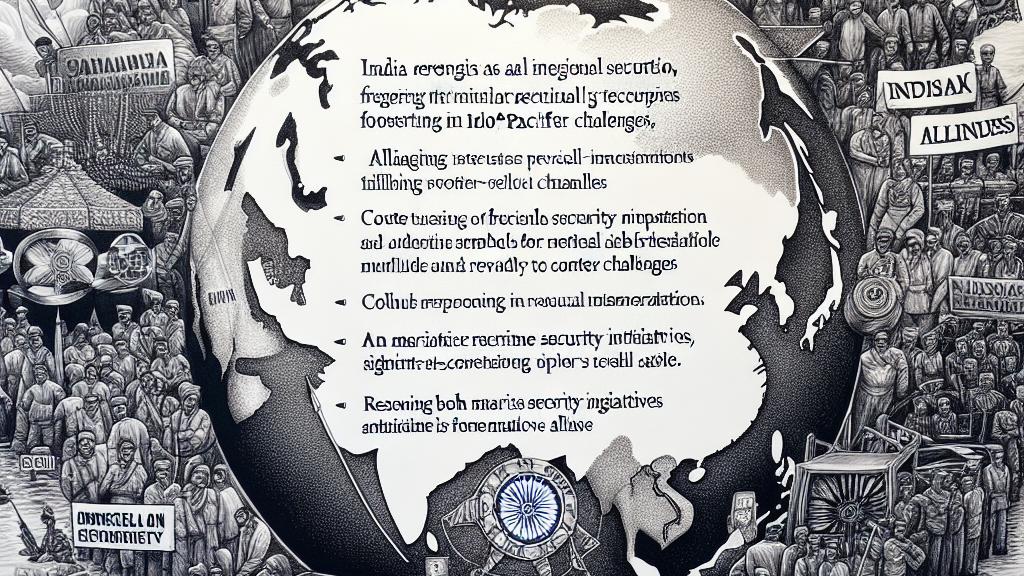Evaluating Trump and Harris: Implications for India During PM Modi's US Visit
Overview
- PM Modi's US visit is a crucial inflection point for India’s international strategy.
- Engagements with US leaders highlight potential shifts in bilateral relations.
- Examining how Trump and Harris could shape India's global positioning.

Significance of PM Modi's Engagement in the US
Prime Minister Narendra Modi's recent visit to the United States stands as a pivotal moment in shaping India's international narrative. Occurring alongside essential forums such as the Quad Summit and the UN's Summit of the Future, this visit seeks to underscore India's growing influence in global affairs. In his discussions with President Biden and other Quad leaders, Modi articulated India's proactive stance on regional security and emphasized the importance of alliances in countering the challenges posed by an assertive China. For instance, joint initiatives aimed at improving maritime security signal a collective commitment that resonates well beyond mere diplomatic niceties. Modi's efforts were evident as he underscored India’s position as a vital player in fostering stability in the Indo-Pacific, serving both India's interests and those of its allies.
The Political Contest: Trump Versus Harris
As the backdrop of Modi's visit unfolds, the approaching US elections spice up the political landscape. Current polling suggests a nail-biting race where Kamala Harris maintains a slight lead over Donald Trump. The implications of this contest cannot be overstated, as it may redefine the future of India-US relations. Historically, Modi's relationship with Trump has been characterized by fluctuating trade policies and ambitions. Trump’s administrations pursued aggressive tariffs, which strained ties, while simultaneously initiating negotiations that reflect a complex economic dynamic. Harris, on the other hand, may advocate for a more holistic partnership, focusing on technology sharing and climate change—areas crucial for India's burgeoning economy. This contrast draws attention to how political identities on either side could significantly influence cooperation in various sectors, ranging from defense to renewable energy innovations. The ability of either candidate to engage with Modi and foster that relationship is something that undoubtedly weighs on both administrations' actions.
Fostering Strategic Ties: Future Prospects for India
Throughout this high-profile visit, discussions extended into critical sectors such as healthcare, technology, and military collaboration, all of which are vital for India and the US. Take, for example, anticipated deals regarding advanced technology partnerships that promise to pave the path for innovation in India, particularly in AI and semiconductors. Reports of a partnership with General Electric to manufacture jet engines in India exemplify how this trip could lay the groundwork for mutual benefit; it would not only enhance India's defense capabilities but also cement its role as a manufacturing hub on the global map. Moreover, Modi's outreach to the Indian diaspora, which included grand events aimed at fostering community engagement, illustrates a dual-purpose strategy of strengthening internal support while affirming India's value on an international platform. By weaving these compelling narratives with diverse themes, Modi's visit emphasizes India's readiness to navigate future challenges. As this chapter of diplomacy unfolds, it’s clear that the implications of this visit could resonate for years to come, showcasing India's aspirations on the world stage.

Loading...